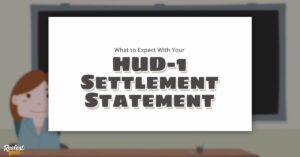When dealing with real estate disputes, property owners, tenants, developers, and various stakeholders may seek legal remedies in the form of injunctions. An injunction is a court order that compels a party to perform or refrain from performing a specific act.
In the context of real estate, injunctions play a crucial role in preventing or halting actions that could cause irreparable harm to property rights, contractual obligations, or the peaceful enjoyment of one’s property.
Real Estate Injunctions In Simple Terms
At its core, a real estate injunction is a legal tool designed to maintain the status quo or prevent further damage until a final resolution is reached. It serves as a temporary measure, providing relief to the party seeking the injunction while the court considers the merits of the case. Injunctions can be issued to stop activities such as trespassing, unauthorized construction, or violations of zoning regulations, among other issues.
7 Types Of Real Estate Injunctions
Real estate injunctions come in various forms, each serving a specific purpose and offering different levels of protection. Here are seven common types of injunctions encountered in real estate disputes:
- Preliminary Injunction
- Temporary Injunction
- Permanent Injunction
- Mandatory Injunction
- Prohibitory Injunction
- Preventive Injunction
- Final Injunction
1. Preliminary Injunction
A preliminary injunction is a temporary court order issued at the early stages of a legal proceeding. It aims to maintain the status quo and prevent irreparable harm until the case is fully heard and resolved. This type of injunction is typically granted based on a reasonable likelihood of success on the merits of the case and the potential for irreparable harm if the injunction is not issued.
2. Temporary Injunction
Similar to a preliminary injunction, a temporary injunction is a short-term court order that remains in effect until a specific event occurs or until a final decision is made. It is often used to preserve the rights of the parties involved while the case progresses through the legal system.
3. Permanent Injunction
A permanent injunction is a long-term or indefinite court order that prevents a party from engaging in specific actions or behaviors. This type of injunction is typically granted after a full trial and a final determination of the case’s merits. Permanent injunctions are often used to resolve ongoing disputes or prevent future violations of property rights or contractual obligations.
4. Mandatory Injunction
A mandatory injunction is a court order that compels a party to take specific affirmative actions. In real estate, this could include requiring a property owner to remove an unauthorized structure, comply with zoning regulations, or grant access to a property in accordance with an existing agreement.
5. Prohibitory Injunction
Conversely, a prohibitory injunction is a court order that forbids a party from engaging in certain actions or behaviors. This type of injunction is commonly used to prevent trespassing, unauthorized construction, or other activities that could infringe upon property rights or violate contractual obligations.
6. Preventive Injunction
A preventive injunction is a proactive measure aimed at preventing potential harm or violations before they occur. This type of injunction is often sought when there is a reasonable apprehension of imminent harm or a clear intention to violate property rights or contractual obligations.
7. Final Injunction
A final injunction is a court order issued after a full trial and a final determination of the case’s merits. It is a permanent order that resolves the dispute and provides a lasting solution to the parties involved. Final injunctions are typically granted when monetary damages alone are insufficient to address the harm or violation at issue.
Also Read: Real Estate Career Quiz: Is Becoming A Real Estate Agent Right For You?
What Is Specific Performance?
In the context of real estate injunctions, the concept of specific performance is often invoked. Specific performance is a legal remedy that compels a party to fulfil the terms of a contract or agreement. When monetary damages are insufficient to compensate for the breach of contract, a court may order specific performance, requiring the breaching party to complete the agreed-upon transaction or fulfil their contractual obligations.
The Legal Process: From Filing To Final Judgement
The process of obtaining a real estate injunction involves several steps and parties. Here’s an overview of the legal process:
Moving Party and Opposing Party
The party seeking the injunction is known as the moving party, while the party against whom the injunction is sought is referred to as the opposing party. The moving party must demonstrate a legitimate legal basis for the injunction and provide evidence to support their claims.
Court of Appeals and Supreme Court
Real estate injunction cases often involve multiple levels of the judicial system. If a party is dissatisfied with the decision of the trial court, they may appeal to higher courts, such as the Court of Appeals or even the Supreme Court, depending on the jurisdiction and the significance of the case.
Trial Court and Equitable Relief
The initial stage of the legal process typically involves filing a complaint or petition with the trial court, seeking equitable relief in the form of an injunction. The trial court will consider the evidence and arguments presented by both parties before determining whether to grant or deny the injunction.
Ex Parte Proceedings
In certain urgent situations, a party may seek an ex parte injunction, which is a temporary order issued without the presence or input of the opposing party. This type of injunction is typically granted when there is a risk of immediate and irreparable harm, and the court deems it necessary to act swiftly to preserve the status quo.
Final Hearing and Final Injunction
After considering the evidence and arguments from both parties, the trial court will hold a final hearing to determine whether to issue a final injunction. If granted, the final injunction will outline the specific terms and conditions that must be followed by the parties involved.
Irreparable Harm And Legal Remedies
One of the key considerations in granting a real estate injunction is the concept of irreparable harm. Irreparable harm refers to damages or losses that cannot be adequately compensated or remedied through monetary damages alone. In real estate cases, irreparable harm can include the loss of unique property, the destruction of environmentally sensitive areas, or the violation of property rights that cannot be easily restored.
Legal Remedies And Monetary Damages
While injunctions are equitable remedies designed to prevent or halt specific actions, legal remedies such as monetary damages may also be sought in real estate disputes. However, in certain cases, monetary damages alone may be insufficient to address the harm or violation at issue, necessitating the need for injunctive relief.
Compensatory Damages And Equitable Relief
In some instances, courts may award both compensatory damages (monetary compensation for losses) and equitable relief (injunctions or specific performance) to fully address the harm or violation. This combination of legal and equitable remedies aims to provide comprehensive relief to the aggrieved party.
Real Estate Injunctions In Practice
Real estate injunctions are commonly sought in various scenarios involving property rights, contractual obligations, and the peaceful enjoyment of one’s property. Here are some common applications of real estate injunctions:
Neighbour Disputes And Boundary Issues
Injunctions may be sought to resolve disputes between neighbors, such as trespassing, encroachments, or violations of boundary agreements. They can be used to prevent further encroachments or compel the removal of structures or obstacles that infringe on property rights.
Landlord-Tenant Conflicts
Both landlords and tenants may seek injunctions to address various issues, such as evictions, unauthorized alterations to the property, or violations of lease agreements. Injunctions can be used to prevent unlawful evictions or compel compliance with lease terms.
Homeowners’ Association (HOA) Disputes
In communities governed by homeowners’ associations (HOAs), injunctions may be sought to enforce covenants, bylaws, or rules related to property use, maintenance, and appearance. HOAs may seek injunctions to compel compliance or prevent violations of community guidelines.
Intellectual Property Infringement
In the real estate industry, intellectual property rights, such as trademarks or copyrights, may be infringed upon. Injunctions can be used to prevent the unauthorized use of protected intellectual property or compel the removal of infringing materials.
Environmental and Nuisance Issues
Injunctions may be sought to address environmental concerns or nuisance issues, such as noise pollution, hazardous waste disposal, or other activities that negatively impact the surrounding properties or community.
Construction and Development Disputes
In the context of construction and development projects, injunctions can be used to halt unauthorized construction, enforce zoning regulations, or compel compliance with contractual obligations or building codes.
Contractual Disputes Involving Real Estate Agents
Real estate agents and brokers may seek injunctions to enforce non-compete agreements, protect trade secrets, or prevent the misuse of client information or proprietary data.
Eviction Prevention in Tenant Hardship Cases
In certain circumstances, tenants facing eviction due to financial hardship or other extenuating circumstances may seek injunctive relief to prevent or delay the eviction process, providing them with
Also Read: Easements Explained: What is an Easement in Gross?
Innovations and Evolving Trends in Real Estate Injunctions
As the real estate industry evolves, new applications and trends in the use of injunctions are emerging. Some notable developments include:
- Short-Term Rental Regulations: Injunctions enforcing regulations and zoning laws governing short-term rentals like Airbnb.
- Affordable Housing Initiatives: Injunctions preventing demolition/conversion of affordable housing units or compelling compliance with inclusionary zoning policies.
- Sustainable Development and Green Building Practices: Injunctions enforcing environmental regulations, energy efficiency standards, and sustainable construction practices.
- Emerging Technologies and Smart Cities: Injunctions addressing data privacy, cybersecurity, and responsible use of new technologies in urban planning and real estate development.
- Collaborative Dispute Resolution: Using injunctions as temporary measures while parties engage in alternative dispute resolution methods like mediation or arbitration.
Other Applications of Injunctions
Injunctions have various applications beyond the real estate realm, including:
Domestic Violence and Injunctions
- Courts issue injunctions (restraining orders) to protect victims of domestic violence/abuse.
- Prohibit abusers from contacting, harassing, or coming near the victim or their family.
Nuisance Abatements and Environmental Concerns
- Injunctions address public nuisances like noise pollution, illegal dumping, or environmental hazards.
- Local authorities compel property owners/businesses to abate nuisances and comply with regulations.
Legal Advice and Real Estate Injunctions
Navigating real estate injunctions often requires legal expertise. Here’s why:
| Reason | Explanation |
| Complexity of Cases | Real estate disputes can involve intricate legal issues, necessitating professional guidance. |
| Irreparable Harm Prevention | Prompt action is crucial to prevent irreparable harm, and attorneys can advise on the best course of action. |
| Evidence and Merits Assessment | Attorneys can assess the merits of a case, gather evidence, and evaluate the chances of obtaining an injunction. |
| Legal Strategy and Representation | Real estate attorneys can develop effective legal strategies and represent clients in court proceedings. |
| Ongoing Support and Guidance | Attorneys can provide ongoing support and guidance throughout the legal process, from filing to appeals. |
The Role of a Real Estate Attorney
Real estate attorneys play a vital role in advising clients on their legal rights, options, and the potential implications of injunctive relief. They can:
- Assess the merits of a case and gather evidence
- Guide clients through the process of seeking or defending against injunctions
- Provide insights into the potential consequences of injunctive relief
- Represent clients in court proceedings and appeals
Legal Remedies and the Importance of Prompt Action
In many real estate disputes, prompt action is essential to prevent irreparable harm or protect one’s rights. Delays in seeking legal remedies, including injunctions, can potentially:
- Undermine the effectiveness of these remedies
- Allow further harm to occur
- Jeopardize the chances of obtaining injunctive relief
It is crucial to seek legal advice and take appropriate action in a timely manner to maximize the chances of obtaining injunctive relief and protecting one’s interests.
Frequently Asked Question
What is an injunction in real estate?
An injunction is a court order that requires someone to stop doing a specific action or to do something to remedy a situation related to real estate.
When is an injunction used in real estate?
Injunctions are typically used when there’s a dispute over property rights or when one party is engaging in activities that could harm another party’s interests in real estate.
Who can request an injunction in real estate matters?
Any party with a legitimate interest in the property, such as owners, tenants, or neighboring property owners, can request an injunction if they believe their rights are being violated.
What types of issues can lead to an injunction in real estate?
Common issues include boundary disputes, violations of property use agreements, construction disputes, nuisance claims, or breaches of contract related to real estate.
What happens if someone violates an injunction in real estate?
Violating an injunction can result in serious consequences, including fines, contempt of court charges, and further legal action to enforce compliance with the court order.
Conclusion
Real estate injunctions are powerful legal tools that play a vital role in resolving disputes, enforcing contractual obligations, and protecting property rights. From preventing unauthorized construction to halting environmental violations, injunctions serve as a means to maintain the status quo and prevent irreparable harm until a final resolution is reached.
As the real estate industry continues to evolve, the applications of injunctions are likely to expand, addressing emerging issues such as short-term rental regulations, sustainable development practices, and the responsible use of new technologies in the built environment.
Navigating the complexities of real estate injunctions requires a deep understanding of the legal principles and processes involved. Seeking the guidance of experienced real estate attorneys is essential to ensure that one’s rights and interests are effectively protected throughout the legal proceedings.















